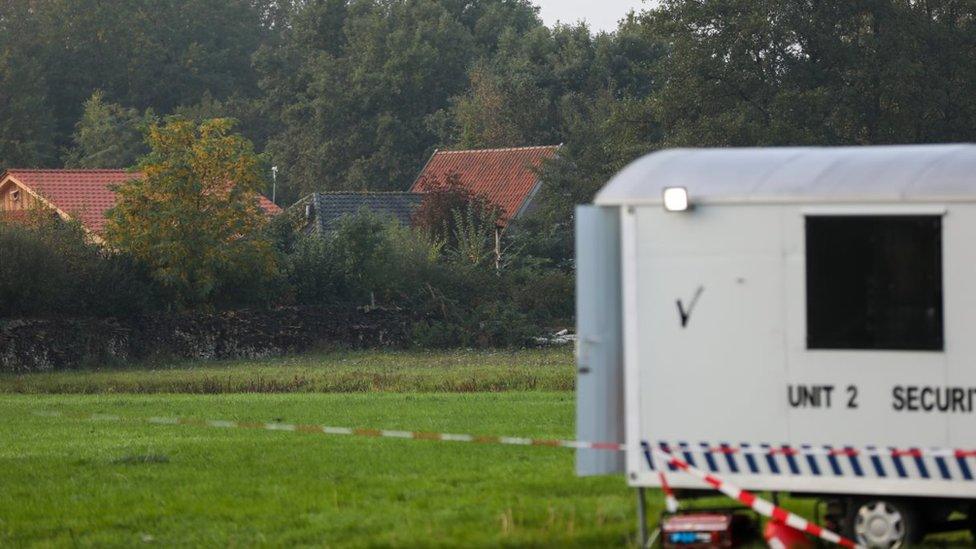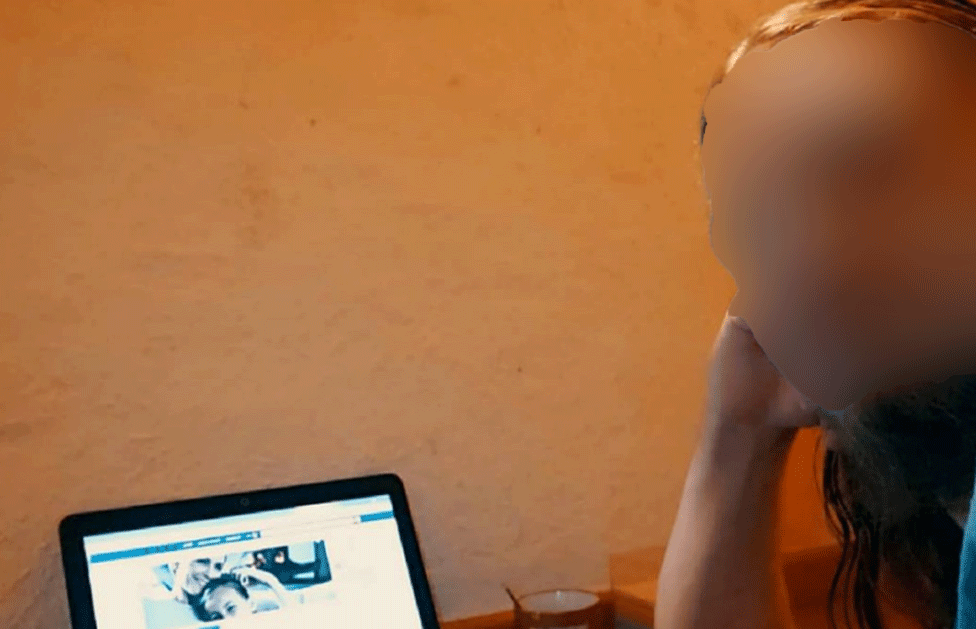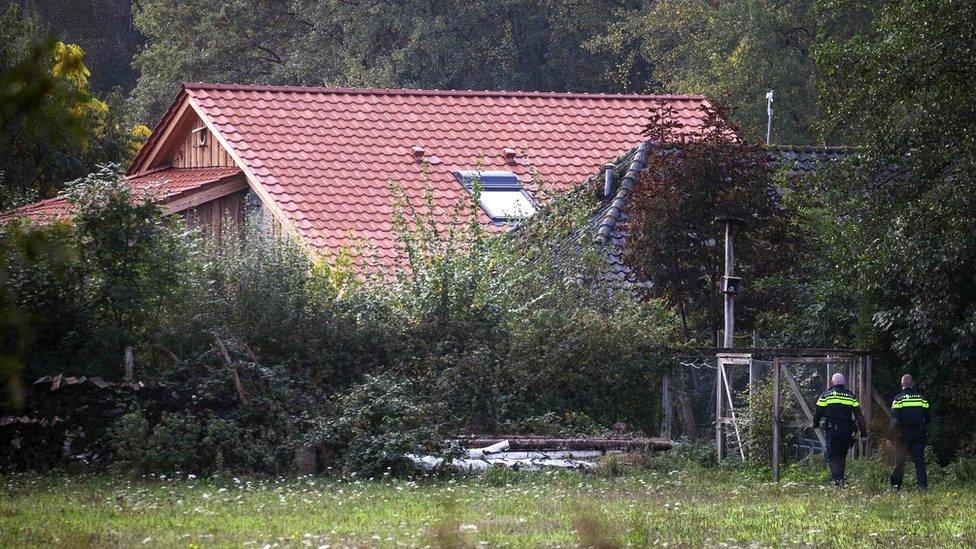Dutch farm mystery: Father held as police unpick secret farm 'sect'
- Published
Police discovered a hidden room at a remote farmhouse in the Netherlands
The 67-year-old father of a family found living in a secret room on an isolated Dutch farm has been arrested.
His arrest came hours after an Austrian man who rented the property was remanded in custody.
Six grown-up children apparently spent the past nine years in seclusion on the farm, near the village of Ruinerwold.
Reports suggest the two arrested men may have formed their own sect, and police said they believed the children were held against their will.
Police confirmed that the six children, aged 18-25, included four women and two men and that their father had suffered a stroke.
How the story unfolded
The alarm was raised when the 25-year-old eldest son, Jan, turned up at a local bar in Ruinerwold in the northern province of Drenthe.
The bar-owner raised the alarm with police after the son revealed he had never been to school and said he had run away and needed help.

Reports say the farm was equipped with motion detectors and security cameras
Police went to the farm where they found Jan's five siblings, his father and the 58-year-old Austrian man. The Austrian, a handyman named Josef B, appeared before an examining magistrate on Thursday and was detained for 14 days on suspicion of unlawfully depriving the children of their liberty and money laundering.
Police said the children had identified the man arrested, named locally as Gerrit Jan van D, as their father, but authorities had not yet confirmed the link.
A large sum of money was said to have been found on the farm.
Allow X content?
This article contains content provided by X. We ask for your permission before anything is loaded, as they may be using cookies and other technologies. You may want to read X’s cookie policy, external and privacy policy, external before accepting. To view this content choose ‘accept and continue’.

Were they part of a sect?
In a statement, police said they were investigating whether the lifestyle of the eight people on the farm was connected to a particular philosophy of life or religious conviction.
According to Dutch media, the father and the farm's Austrian tenant had once been neighbours and got to know each other through the Unification Church, the worldwide movement often known as the Moonies which originated in South Korea.
In Austria, Josef B's brothers told the Kronen Zeitung website that he had joined a sect and had not turned up for the funerals of his parents in the past four years. "He thought he was better than Jesus," brother Franz told the paper.

The eldest of the children, Jan van D (his face blurred to disguise his identity, has been on social media for several months
Unification Church spokesman Willem Koetsier said the father, Gerrit Jan van D, left in 1987.
"At the same time he also broke off contact with the family," a nephew told Algemeen Dagblad. "At one point he got some crazy ideas in his head, but nobody in the family wants to talk about that."
Mr Koetsier said older members who knew him in the 1980s had described him as a very "ritual" person who had set up his own group with his family. "But it's not our outlook to go and live on a farm and hide from the outside world," he added.
"Sometimes people who are spiritual start their own church of movement, and I reckon that's what happened to him," he said.
Residents in the father's home town of Herxen thought he had joined the Moonies and died in South Korea. But it is thought Gerrit Jan van D moved to a sister group in Germany before marrying the children's mother and returning to the Netherlands. The mother died in 2004.
What have police found out?
Janny Knol, North Netherlands deputy police chief, confirmed that the children had been banned from going outside the house. "On the farm there was actually a separate, closed-off area and its main aim was to keep the outside world out," she told Dutch TV.
Since Tuesday, police psychologists have had a chance to speak to the family and have found out they were occasionally allowed out of the house but only on land immediately surrounding the farmhouse. Local reports said motion detectors and security cameras had been installed on the farm.
Ms Knol said it was not clear where the children were born but they had never been to school and were not registered by local authorities. She said they were having to tread a careful line between looking after the family's welfare and finding out what was necessary for the investigation.
The eldest of the six, Jan, who was not at the farm when police went there, is being cared for in a separate place. He has had several social media accounts running for the past few months.
Police have admitted going to the farm in the past, following up reports of a cannabis farm on the property, but say they never entered the building.
A team of 30 police are now trying to solve the mystery of the farm at Ruinerwold. The farmhouse is still being investigated and other properties have also been searched.
- Published17 October 2019
